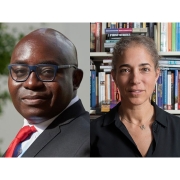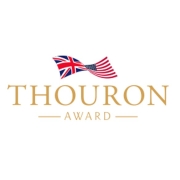Researchers Focus on Optimizing Mental Health Treatments Using Big Data
What if with the click of a button, a clinician could improve and personalize a patient’s treatment for a mental illness like post-traumatic stress disorder, depression or panic disorder? That’s the goal of a new data tournament created by Robert DeRubeis and Zachary Cohen that will start in October and run through March.
“We can do a better job of matching a person with the treatment that’s going to work well for them, that’s not much more than they need in terms of time and effort and that is much more likely to help them,” says DeRubeis, the Samuel H. Preston Term Professor in the Social Sciences. “We’re hoping that this brings the overall efficiency of mental-health treatments up a notch or two, at a very low cost.”
For the tournament, nine teams from universities and labs across the country and the world will receive data from 4,000 patients treated in northern England through the Improving Access to Psychological Therapies, or IAPT, program during a specific four-year period. An additional randomly selected 2,000 patients from that same time frame will be set aside to act as a test sample later.
Teams will then aim to build a predictive model that indicates which patients should start with low-intensity treatment and which should begin with high-intensity treatment. The output must accurately reflect the current IAPT patient breakdown, in which approximately 27 percent start in the high-intensity bucket.
The idea dawned on the researchers after hearing Barbara Mellers, a Penn Integrates Knowledge Professor, discuss The Good Judgment Project, a four-year forecasting tournament that asked groups to predict answers to 500 political questions. The Penn team, which she ran with PIK Professor Philip Tetlock, won and in the process discovered what they came to call superforecasters, ordinary people whose combined predictive abilities became more powerful than highly trained intelligence-community analysts.
Cohen, a doctoral candidate clinical psychology, thought the same design could be applied to mental health, where professionals all looking at the same dataset try to predict the same outcome and then learn from each other.
“The model we would generate from that would be the best model,” he said, “and it would have an immediate impact on the system in which we’re building it.”
Click here to read the full story.





